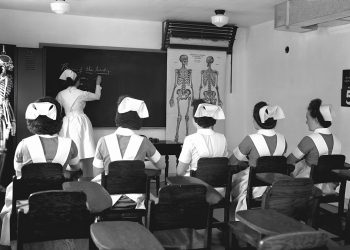No products in the cart.
Navigating Career Pressure: Lessons from Sky Castle Education
The South Korean drama Sky Castle brings to light the intense academic pressure faced by students, exploring its impact on mental health and career success.
Seoul, South Korea — The South Korean drama Sky Castle captivates audiences with its gripping portrayal of elite academic culture and the intense pressures faced by students. As families strive for prestige and success, the series unveils the darker side of high achievement: mental health struggles.
Set in an affluent neighborhood, Sky Castle follows four families who will stop at nothing to ensure their children gain admission to top universities. The show’s narrative serves as a mirror reflecting the societal expectations and relentless pursuit of excellence that permeates South Korean culture. According to a 2022 report by the Korea Educational Development Institute, 84% of students in South Korea experience academic stress, a figure that underscores the urgent need for dialogue around mental health in education [1].

The consequences of this pressure are alarming. A survey conducted by the Korean Institute of Child Care and Education found that nearly 40% of students reported feelings of depression and anxiety linked to their academic obligations [2]. As students grapple with expectations to excel, many find themselves sacrificing their well-being for the sake of grades and accolades. This dynamic has sparked conversations about the sustainability of such an approach to education.
 Career Advice
Career AdviceMastering the Art of Requesting Recommendation Letters
Asking for a recommendation letter can be daunting. Our guide breaks down the do's and don'ts for securing impactful endorsements.
Critics argue that the hyper-competitive environment fosters not only academic burnout but also stifles creativity and personal growth. Dr. Kim Soo-jin, a clinical psychologist in Seoul, emphasizes the importance of balancing achievement with well-being. “When students are pushed beyond their limits, it can lead to a loss of interest in learning,” she explains. “Education should be about nurturing curiosity, not just about grades.”
A survey conducted by the Korean Institute of Child Care and Education found that nearly 40% of students reported feelings of depression and anxiety linked to their academic obligations [2].
Moreover, the narrative of Sky Castle raises questions about the role of parents in this cycle. The characters often embody the extreme lengths parents will go to secure their children’s futures. This phenomenon isn’t unique to South Korea; many cultures grapple with similar parental expectations. A 2023 study by the Organization for Economic Cooperation and Development (OECD) found that parental pressure is a significant factor in student stress across many countries, including the United States and Japan [3].
In an attempt to mitigate these pressures, educational reforms have begun to take root. The South Korean government has introduced measures aimed at reducing the emphasis on rote memorization and standardized testing. Schools are now encouraged to adopt more holistic approaches to education, focusing on students’ emotional and psychological well-being alongside academic success. These changes are critical as they acknowledge that education should cultivate not just knowledge, but also resilience and adaptability.
Furthermore, the rise of alternative educational models offers a glimpse into the future of learning. Institutions like the International School of Seoul are pioneering programs that prioritize critical thinking, creativity, and emotional intelligence over traditional metrics of success. By fostering an environment that values individual strengths, these schools are redefining what it means to achieve.
 Personal Finance
Personal FinanceBalancing Hustle and Health: A $100 Million Founder’s Approach
Discover how a $100 million founder encourages her team to prioritize work-life balance, despite her own intense dedication.
Read More →As the conversation around academic pressure continues, mental health advocacy is gaining momentum. Organizations such as the Korea Mental Health Foundation are working tirelessly to promote awareness and provide resources for students struggling under the weight of expectations. Their initiatives aim to create supportive environments where students can thrive without compromising their mental health.
The lessons drawn from Sky Castle resonate beyond South Korea, as global discussions about educational practices evolve. In a world increasingly defined by rapid change and uncertainty, the ability to adapt and remain mentally healthy is paramount. Young adults today must cultivate resilience and seek support when needed, recognizing that success is not solely defined by academic achievement.
Schools are now encouraged to adopt more holistic approaches to education, focusing on students’ emotional and psychological well-being alongside academic success.
As we look ahead, it is crucial for students, educators, and parents to engage in open dialogues about mental health and the pressures of achievement. By prioritizing well-being alongside academic success, we can foster a generation of learners who not only excel but also thrive in their personal lives. After all, the true measure of success lies not in grades alone, but in the ability to lead fulfilling, balanced lives.











